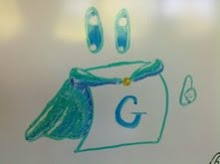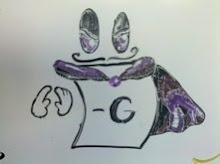Yes, I didn't post at all last week. I am still very much catching up on things I missed while at Integers. Next week I will be at Supercomputing and will likely miss another post or both. I don't often have the desire to pause the teaching part of the semester to get research/blogging done, but this is turning out to be one of those semesters. Mostly, I want to make sure I write good posts about the game talks at Integers (or what I understood of them). I hope I can find extra time to spend on them, but it's more likely that they'll come out a bit less-than-perfect. Hopefully some of them are readers and can comment on all the errors
While at Integers, I spent a lot of time struggling with NoGo, only to run into problems I encountered at BIRS in January. While there, I found that NoGo on a graph is NP-hard, but was neither able to show that Graph NoGo was PSPACE-complete, nor show any hardness for standard NoGo (on a grid). The same thing happened last month: no new progress. So I tried flipping it around and started looking for an efficient algorithm for NoGo. Either Neil McKay or Alex Fink (I think it was Neil) asked me about it, and I told him what I was doing. He was surprised I had given up on computational hardness so quickly. His comment made sense: I have more experience finding hardness results than showing efficient algorithms for problems (though I would argue that hardness reductions ARE efficient algorithms). Research-wise, you strive for results! So, you should spend your time conquering problems you're good at. Instead, I was trying something a bit different.
Luckily my job is far more focused on teaching than research, so the pressure to publish is less intense. It's very nice to know I can try a completely different tactic if I get frustrated with a problem!
... not that I had any luck with this!
On a related note, student presentations have started in my games class! One question that came up is: What does it mean for a game to be solved? I answered that there's an easy way to evaluate the game without drawing out all of the game tree. I hope that's a good enough answer. For myself, it means there is an efficient algorithm to solve the problem. I generally consider a completeness result to be "solving" the game, though perhaps it's the opposite: the game (probably) cannot be solved!



